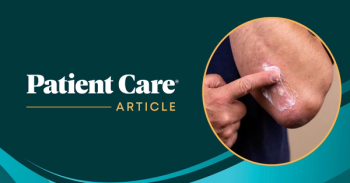
Tinea Versicolor: Case 6
A 16-year-old black girl complained of a gradually worsening facial eruption. She had been assured by her family physician that this was caused by an allergy to soap; she applied over-the-counter 1% hydrocortisone cream daily.
A 16-year-old black girl complained of a gradually worsening facial eruption. She had been assured by her family physician that this was caused by an allergy to soap; she applied over-the-counter 1% hydrocortisone cream daily.
Other medical history was noncontributory, except that the patient only washed her hair once every 2 weeks. Physical examination showed hypopigmented and scaly facial macules. Heavy dandruff was noted on her scalp. The remainder of the cutaneous examination was entirely normal.
Tinea versicolor may affect the face without involvement of the trunk. This is especially true in black children. Topical corticosteroids would be expected to worsen the condition. Although not a sufficient primary therapy, soaps containing benzoyl peroxide, typically used to treat acne, may hasten the resolution of tinea versicolor.
Periodic use of such soaps (once to twice a week) at the start of each succeeding spring season may well prevent the appearance of a new outbreak of tinea versicolor.
In this patient, the scalp is clinically involved, mandating the use of a therapeutic shampoo. I prefer ketoconazole shampoo, although selenium sulfide–containing products would likely suffice as well.
Newsletter
Enhance your clinical practice with the Patient Care newsletter, offering the latest evidence-based guidelines, diagnostic insights, and treatment strategies for primary care physicians.

































































































































